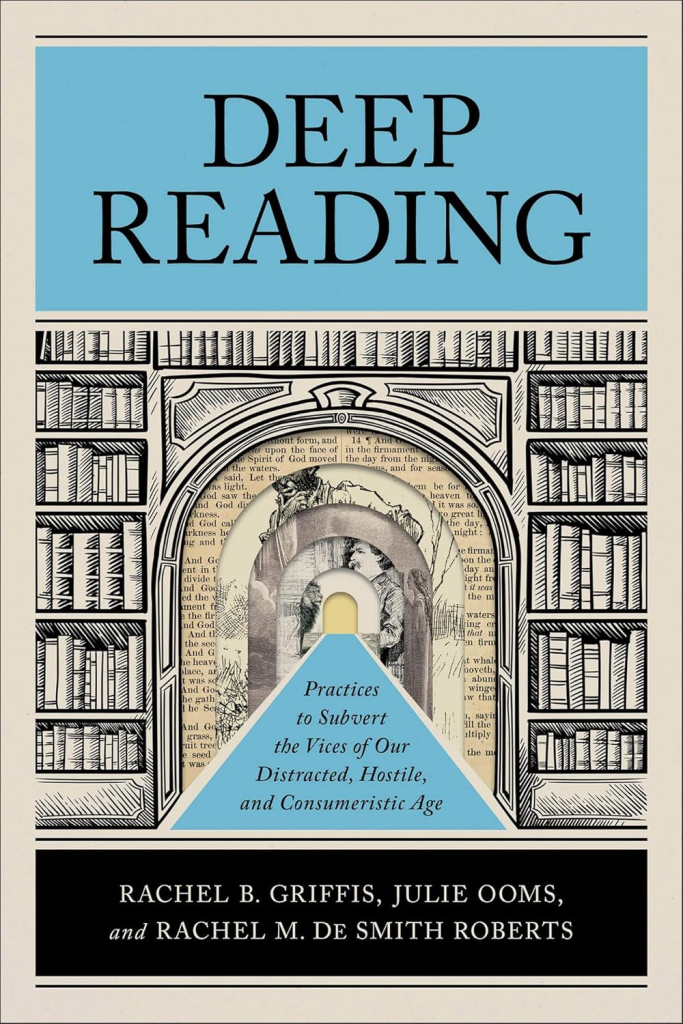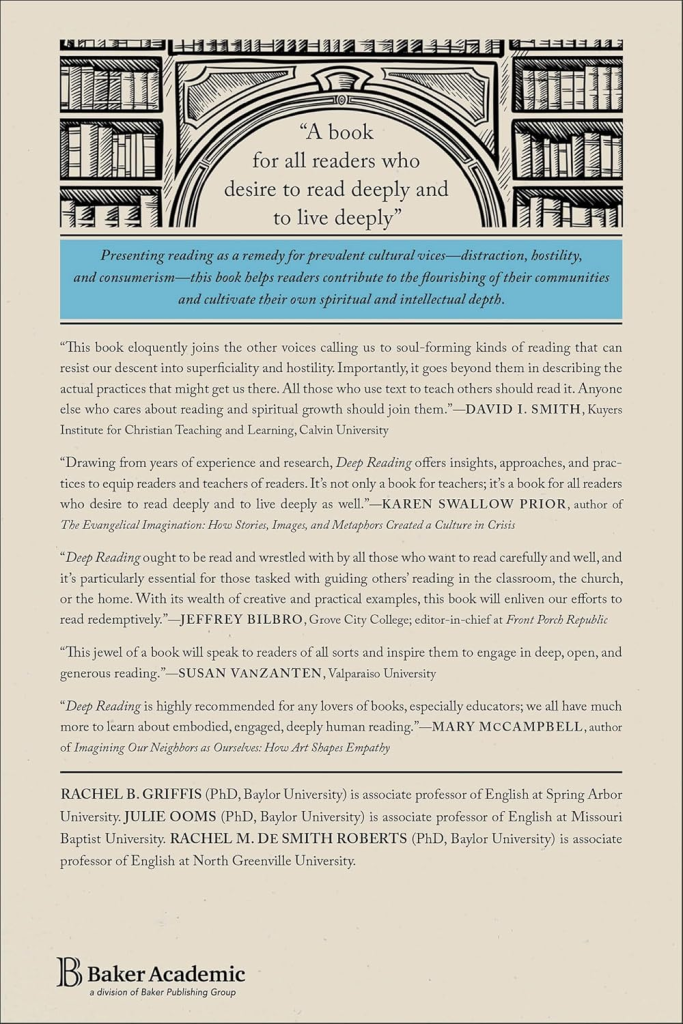Good Readers Need More Than Good Reads

Summary
Deep Reading: Practices to Subvert the Vices of Our Distracted, Hostile, and Consumeristic Age is a book co-authored by English professors Rachel B. Griffis, Julie Ooms, and Rachel M. De Smith Roberts. The book explores three major vices of the modern reading environment—distraction, hostility, and consumerism—and proposes a series of deep reading practices to help readers overcome these vices, thereby fostering spiritual and intellectual growth.
Main Content
1. Distraction
- Problem: Advances in information technology have exacerbated the issue of distraction, making it difficult for people to focus and affecting the quality of their lives.
- Solution:
- Temperance: Cultivate attention and inner order through traditional methods like meditation and prayer, as well as innovative approaches such as field trips.
- Specific Practices:
- Field Trips: Enhance understanding and focus through personal experiences.
- Reading Groups: Read and discuss in a group setting to reduce distractions.
- Reading Inventory: Regularly reflect on and diagnose one’s reading habits to improve them.

2. Hostility
- Problem: In modern society, especially in educational settings, the polarization of worldviews leads to hostility in reading.
- Solution:
- Prudence: Develop practical wisdom by understanding the historical and cultural contexts of authors, texts, and readers.
- Specific Practices:
- Diverse Reading: Read works from different periods and perspectives.
- Historical and Traditional Contexts: Combine history and Christian tradition to help students examine their beliefs.
- Sensitive Topics: Address issues like trigger warnings and content warnings with an open and inclusive attitude.
3. Consumerism
- Problem: Consumerism treats reading as an investment, focusing on quantifiable returns and neglecting its intrinsic value.
- Solution:
- Generosity: View reading as a gift and share what you learn and love with others.
- Specific Practices:
- Commonplace Book: Record insights from your reading to encourage creation rather than consumption.
- Rereading: Revisit the same work multiple times to gain a deeper understanding of its content and significance.
Conclusion
Through these deep reading practices, the authors aim to help readers overcome the negative impacts of distraction, hostility, and consumerism, achieving spiritual and intellectual maturity. They emphasize that reading is not just about acquiring information but is also a form of spiritual discipline. By rereading and reflecting, readers can better understand and apply what they learn, thereby enhancing both personal and societal qualities.
Author Biography
Matthew Mullins is an associate professor of English at Oklahoma Baptist University and the author of Enjoying the Bible: Literary Approaches to Loving the Scriptures. This article appeared in the January/February 2025 issue of Christianity Today as “Subversive Reading.”







